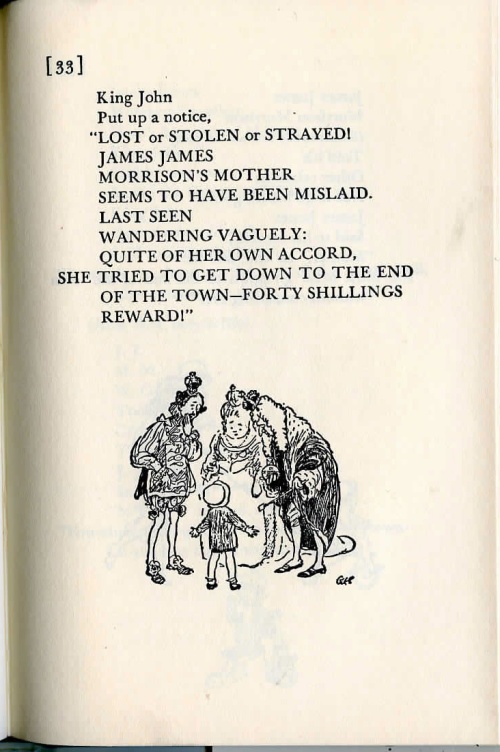It falls to me to complete this tour Around the Table, our fifth post about poems we met as children.
Certainly my sense of language and story were shaped by the many poems our mom read to us five children at bedtime. I especially loved There Once Was A Puffin by Florence Page Jaques (1890-1972), and proposed it as a text that I would illustrate for Dutton Children’s books early on in my career. It came out in 1995. The dedication reads, “To Mom, in whose voice I hear this still.”
Oh, there once was a puffin
Just the shape of a muffin,
And he lived on an island
In the bright blue sea!
 He ate little fishes,
He ate little fishes,
That were most delicious,
And he had them for supper
And he had them for tea.
 But this poor little Puffin,
But this poor little Puffin,
He couldn’t play nothin’,
For he hadn’t anybody
To play with at all.
So he sat on his island,
And he cried for awhile, and
He felt very lonely,
And he felt very small.
 Then along came the fishes,
Then along came the fishes,
And they said, “If you wishes,
You can have us for playmates,
Instead of for tea!”
 So they now play together,
So they now play together,
In all sorts of weather,
And the Puffin eats pancakes,
Like you and like me.
This poem was previously published in Child Life magazine and then reprinted in The Big Golden Book Of Poetry by Jane Werner Watson (1947).
Other childhood poem favorites were by A.A. Milne: Binker in Now We are Six, and Disobedience in When We Were Very Young, all with wonderful “decorations” by Ernest H. Shepard. I loved reading A.A. Milne’s poems to my own children and look forward to sharing them with grandsons, too.
Binker is about an imaginary friend who never lets the young protagonist down.
A sample:
The curious Disobedience is about a mother who does not mind her three-year old’s rules, which made me wonder if my mother needed better taking care of.
Here, in it’s entirety:




Last but not least, here’s a shout out to the story-poems that Mom recited by heart. Once when I burnt my hand badly and couldn’t sleep, Mom sat beside my bed long into the dark night. I was comforted by the glow of the tip of her cigarette and her beautiful voice reciting one poem after another: The Flyaway Horse, The Owl and the Pussycat, The Highway Man, Custard the Dragon. Those cadences are as much a part of me as the genetic material I inherited. Little did she know she was nurturing a writer.





 It was a luminous presentation, full of stories from her 42 years of working and writing with students from all over the world. Her attitude is ever curious. When a student from Afghanistan asked her why she choses to spend time with kids, she answered, “Because I want to remember what you know.”
It was a luminous presentation, full of stories from her 42 years of working and writing with students from all over the world. Her attitude is ever curious. When a student from Afghanistan asked her why she choses to spend time with kids, she answered, “Because I want to remember what you know.”




